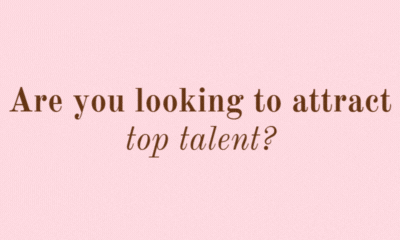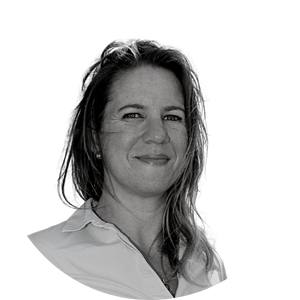 |
INTERVIEW - ÉLISE MASUREL DE LAVAL, MANAGING DIRECTOR OF ÉCOLE DUCASSE: "WE TRAIN CHEFS TO BE MANAGERS, ENTREPRENEURS AND CITIZENS" (France)
The head of the prestigious French culinary school sees a bright future for the profession, combining passion and commitment from new generations of chefs |
Category: Europe - France - Careers
- Interviews and portraits
- Career - Interviews
Interview made by Vanessa Guerrier-Buisine on Thursday 07 September 2023
Élise Masurel de Laval has been at the helm of the École Ducasse since 2019. She is putting her years of experience in the food and hospitality industries to good use to revitalise the school and boost the appeal of the restaurant industry.
Her career at Club Med has given her an agility and a vision that combines high standards and modernity, serving the very varied student profiles that she welcomes to the École Ducasse's three campuses. For the woman who, as marketing and sales director, helped Club Med move upmarket and internationalise, the course has been set for the École Ducasse: to strengthen internationalisation and continue to innovate in the range of courses offered by the school.
For the Journal des Palaces, Élise Masurel de Laval agreed to describe what makes the École Ducasse unique, and to talk about its projects in France and abroad.
Could you describe the evolution of the École Ducasse?
Alain Ducasse himself is on a perpetual quest for innovation. We are constantly reinventing ourselves to be at the forefront of trends and to embody this vision.
The first school was founded in Argenteuil in 1999 by Alain Ducasse, before the opening of the new Meudon campus in November 2020 to absorb rapid growth. In 2007, Alain Ducasse and Yves Thuriès bought the École nationale supérieure de pâtisserie (ENSP), which had been set up in 1984 by the Confederation of pastry chefs in the Château de Montbarnier in Yssingeaux. Here, expertise is extremely strong, with courses in pastry-making, baking, chocolate-making, ice-cream-making, travel cakes and more. A third school is dedicated to amateurs, in the 16th. Arrondissement of Paris. It welcomes nearly 10,000 customers a year, both individuals and companies.
Finally, lately, we have stepped up the international development of new schools, with a school in New Delhi opening in 2021, with the Indian School of Hospitality and a new studio in Bangkok opened last June. Finally, we have a long-standing partnership in the Philippines that is working very well.
What are the fundamentals, the DNA of the School?
We train chefs who are all-rounders and technically excellent, but who are also managers, entrepreneurs, and citizens. Our mission is to turn our students into excellent managers who combine caring with high standards, and into very good entrepreneurs.
The guest experience begins on the website, on entering the restaurant, continues during the service, on the plate of course, and continues right through to joining a loyalty programme. The École Ducasse provides this holistic vision of the customer journey, and teaches us to constantly listen to our customers and be at the forefront of trends.
How do you ensure that École Ducasse's high standards are maintained through its partnerships?
We have a selective international development strategy. Firstly, in the destinations we choose. The importance of local gastronomy, the history of gastronomy in these countries, the willingness of governments to develop responsible tourism and culinary and gastronomic tourism are important criteria. These are often countries that are keen to train, but also countries in which Alain Ducasse is often already present. Indeed, it is frequently because the first two criteria are met that Alain Ducasse is already present.
The choice of partners who share our vision, and offer the quality we want to deliver, is therefore crucial to ensure that the standards are met. Partnerships must be long-term, lasting at least 10 to 20 years. They can be schools, hotels or groups of hotels, with the same vision of top-of-the-range and gastronomy, and who have the same high standards of quality as we do.
What part does eco-responsibility play in your philosophy?
Alain Ducasse's great vision on the subject is to ensure that chefs feel as responsible for the environment as they do for the health of the customers they will be welcoming tomorrow.
It's a cuisine that has to be respectful of the earth, of producers, a cuisine that doesn't waste anything. Alain Ducasse worked on this dimension very early on, with the complete use of the product, and a cuisine with less protein. Naturalness is one of the major subjects we teach our students. We also have a vegetable garden at the entrance to our school, which we use to teach our students about permaculture, from tending the garden to using the produce in cooking and pastry-making.
For us, it's also a mission, in terms of both management and entrepreneurship, to raise awareness and train people to be extremely protective of the environment and health.
The school is a “benchmark for educational excellence”. How would you define excellence?
Excellence takes several forms. First, of course, it's technical excellence because we're going to teach our students the fundamentals of French gastronomy, which were codified very early on by Escoffier and others. French gastronomy is a formidable toolbox for all the cuisines of the world. We teach them this toolbox and all Alain Ducasse's culinary techniques.
We adopt a teaching approach in the form of small classes, with a maximum of 14 to 18 students. A real commitment to ensuring that our students work on their techniques in a very advanced way, with one station per student, for intense individual work and repetition of gestures.
Excellence also lies in all the soft skills that we teach our students, such as rigour and creativity. People skills will be just as important as knowledge.
How do you select the professionals who lecture to the students? How does this work?
Our chef trainers come from gastronomic restaurants, often Michelin-starred, and in particular from Alain Ducasse's restaurants, to take this technical knowledge very far.
We have developed complementary technical and academic courses, with a focus on soft skills. Our chef trainers are exemplary; they have to embody these values of excellence, and combine high standards with benevolence. The managerial, pragmatic and entrepreneurial dimensions must be infused by them. Academic courses are taught by lecturers, frequently from business schools, with an entrepreneurial vision. In the 3-year Bachelor's programme, 100 hours of classes are devoted to management because it's a critical subject if they are to learn how to retain their teams in the future.
Of course, we also invite guest chefs and experts to speak on very specific topics, such as fermentation and permaculture.
Finally, we welcome nearly 90 nationalities to our campuses and the brigades are now completely international, so our trainers all speak English.
What are the profiles of your students and their expectations of the Ecole Ducasse's teachers and trainers?
The common expectation of all our students is the sense and passion they bring to their work. They also share an expectation linked to the eco-responsible dimension, which completes this notion of a search for meaning.
Expectations then vary according to the type of training. We cater for three different profiles: Bachelor's degrees, continuing education and retraining.
How are Bachelor students supported?
Bachelor students need more maternal support. They arrive after the baccalaureate and join the school between the ages of 18 and 20. They are a very international group, with 90 nationalities represented on our two campuses in Paris and Yssingeaux. Furthermore, they spend three years with us, including three semesters on our campuses and three semesters of work experience. They will take 60% practical art courses and 40% academic courses.
At just 18 years of age, they sometimes come from the ends of the earth, so this really requires us to facilitate their arrival in France, to help them with their accommodation, visas and so on. We work with a concierge service, and we have a 'student life' team dedicated to providing this support at every stage of the student's career.
What about students who are changing careers?
As part of the retraining process, we adopt a coaching relationship and intensive technical training. We focus on learning how to set up a restaurant, how to manage a P&L (profit and loss statement), how to communicate, and health and safety. Everything that will enable them to set up their property at the end of the course.
These two-month courses are dedicated to “the essentials of the culinary arts” or “the essentials of French pastry-making”. Other, longer courses lead to a diploma, such as the culinarydiploma, which requires six months' training and three months' work experience, or the pastry diploma, with four months' training and two months' work experience.
We're working on a white paper dedicated to retraining because it's an exceptional phenomenon. Some people have 10 to 20 years' experience in other sectors, and this cross-fertilisation with younger people creates real emulation in the brigades.
We also offer shortened eight-month apprenticeships.
How many students do you take on and how employable are they after the course?
For the start of the new academic year, we are taking on 1,000 students on the so-called long courses, i.e. retraining and Bachelor's degrees (from two months to three years). We are also welcoming 1,600 professionals on two-day continuing education courses at our two schools in Meudon and Yssingeaux. Students who leave our school get between three and four job offers.
How do you ensure that you are always at the forefront of the training offer?
We try to embody Alain Ducasse's forward-looking vision. We regularly shape our programmes to meet these expectations. For example, for the training programmes, we have launched an evening 'Essentials of the Culinary Arts' and strengthened the 'vegetal cuisine' component, increasing the training from two to nine months. We also moved it to our Paris school, to make it more accessible for people from the Paris area. This allows students to continue working while advancing their career transition programme. It's in this same spirit of grasping fast-growing subjects that we've launched an ice-cream maker's CAP.
In addition to internships, how do you ensure that students have a realistic view of the profession?
As part of our drive to give our students a holistic view of the customer experience, they also receive training in our restaurants. At the Meudon campus, they are immersed in our restaurant, which is open to the public every day of the week. This gives them an insight into real service and the reality of the job.
They are both in the kitchen and in the dining room, learning all about sommellerie and mixology.
Do you also train them in drinks?
We train chefs, but we also teach them a sense of detail, which is why they spend time in the dining room. We have also introduced food and wine pairing courses, a tea workshop, a coffee workshop and a masterclass in sake. Our ambition is to open their minds to this whole ecosystem, with which they will be working, to provide the most exceptional experience possible for their customers.
Does this include the art of the table?
Absolutely. Chantal Wittmann, Meilleur Ouvrier de France Maître d'Hôtel, service and table arts, teaches the students all about this dimension.
What expectations do professionals have of your students in terms of work placements? And when recruiting them for their first experience?
Professionals are not immediately looking for absolute technical expertise, but for a love of the job and curiosity. They find this thirst for learning in the profiles of young people, but also in the profiles of people who are retraining.
In the kitchen, chefs are continually looking for proactive and creative profiles. More and more chefs also want to surround themselves with students interested in environmental and responsible issues, young people who can challenge them.
What changes or new features will be introduced for the start of the 2023 academic year?
This year, Alexandre Gauthier (chef of the restaurant La Grenouillère, in Pas-de-Calais, two stars in the Michelin Guide) is the patron of the Bachelor of the Culinary Arts class, a chef perfectly aligned with our values. Jonathan Mougel, Meilleur Ouvrier de France pâtissier-confiseur 2019, is the patron of the Pastry Bachelor class. Finally, we welcome Jacques Maximin as our chef in residence. He will be working with our students throughout the year. Not only will he be offering technical masterclasses, but the students will also have regular lunches with him. He can tell them about his career and anecdotes, give them advice, and tell them about the history of French gastronomy.
In terms of programmes, we renew ourselves every year, with almost 40 new themes per year replacing 40 others.
For this second semester, in cooking, we are including courses on fermentation, which is part of an eco-responsible and healthy approach. A “nutrition and health” section has also been added. In healthcare facilities, this is a very important subject. We are also introducing a 'contemporary trilogy', based around fish, vegetables, and cereals.
In pastry, new themes are emerging around the notion of 'desseralité', with gluten-free and additive-free pastries, and lighter pastries with less sugar. We are developing a section on chocolate, 'bean to bar', to understand the whole chain, from planting to creating your own chocolate.
We have also launched a diploma, the 'French and Italian pastry arts diploma', with Alma, the leading Italian culinaryschool near Parma. In line with this multicultural approach, we have also launched a partnership with the Auguste Escoffier School of Culinary Arts in the United States (see our article of 21 June 2023).
What are the plans for the École Ducasse, both in France and abroad?
In the very short term, we are opening the extension to the ENSP, a very exciting project for us. We have two additional laboratories, classrooms, and student accommodation. This will enable us to meet all the international demand that this unique pastry school attracts, and to become the largest pastry school in the world.
We are continuing with our international development projects. Asia obviously remains a region with great potential, and we're also genuinely interested in the Middle East. We're also interested in North America.
|
|







